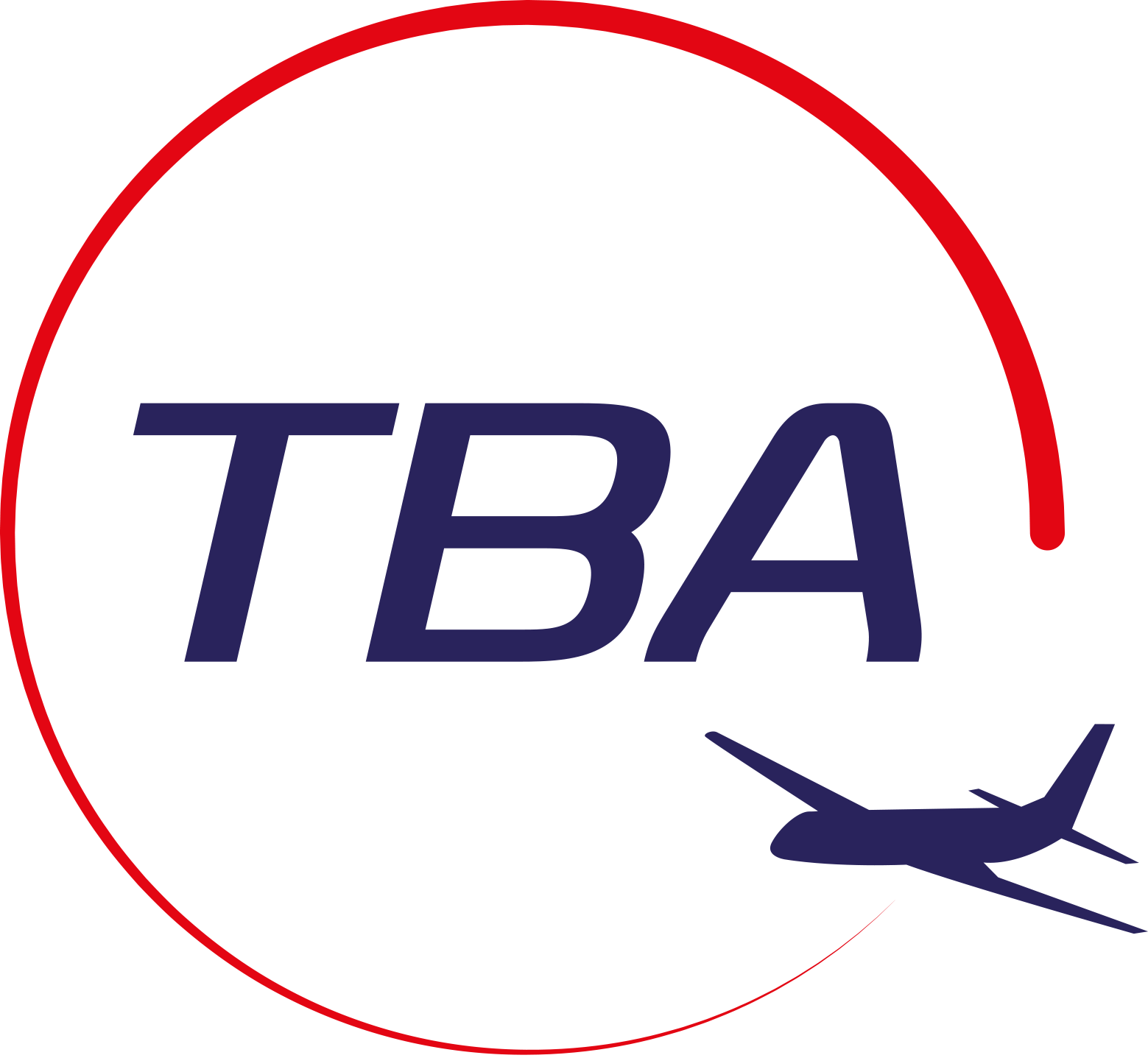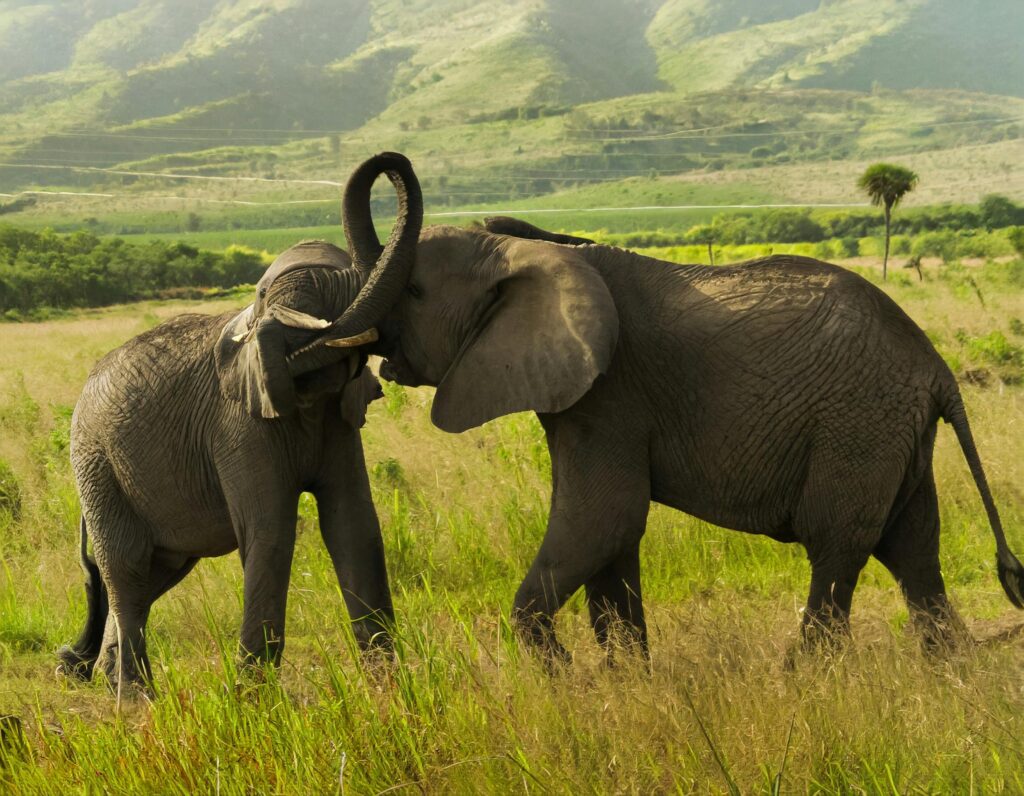
Research and knowledge are the first steps for Kenya Travel Business Assistance. Here is a fact file for Kenya to get you started. Contact us if you are looking to start a business in or expand your market to Kenya. We have consultants ready to help you on the ground in Kenya.
Overcome market entry challenges effortlessly – Schedule your free consultation with Travel Business Assistance now.
Basic Facts
Origin of the name: Kenya is named after a mountain of the same name. The Kikuyu people, who lived around present-day Mt Kenya, referred to it as “Kirinyaga” or “Kerenyaga”, meaning mountain of whiteness because of its snow-capped peak. Mt Kirinyaga, which was the main landmark, became synonymous with the territory the British later claimed as their colony. However, the name ‘Kenya” arose out of the inability of the British to pronounce Kirinyaga correctly.
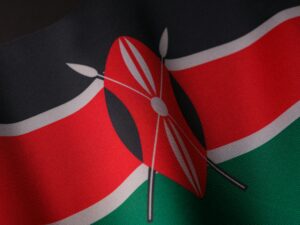 History & Independence: Fossils found in East Africa suggest that protohumans roamed the area more than 20 million years ago. Recent finds near Kenya’s Lake Turkana indicate that hominids lived in the area 2.6 million years ago. Cushitic-speaking people from northern Africa moved into the area that is now Kenya beginning around 2000 BC. Arab traders began frequenting the Kenya coast around the first century A.D. Kenya’s proximity to the Arabian Peninsula invited colonization, and Arab and Persian settlements sprouted along the coast by the eighth century. During the first millennium A.D., Nilotic and Bantu peoples moved into the region, and the latter now comprises three-quarters of Kenya’s population. Arab dominance on the coast was eclipsed by the arrival in 1498 of the Portuguese, who gave way in turn to Islamic control under the Imam of Oman in the 1600s. The United Kingdom established its influence in the 19th century. The first direct elections for Africans to the Legislative Council took place in 1957. Kenya became independent on December 12, 1963, and the next year joined the Commonwealth. Jomo Kenyatta became Kenya’s first president.
History & Independence: Fossils found in East Africa suggest that protohumans roamed the area more than 20 million years ago. Recent finds near Kenya’s Lake Turkana indicate that hominids lived in the area 2.6 million years ago. Cushitic-speaking people from northern Africa moved into the area that is now Kenya beginning around 2000 BC. Arab traders began frequenting the Kenya coast around the first century A.D. Kenya’s proximity to the Arabian Peninsula invited colonization, and Arab and Persian settlements sprouted along the coast by the eighth century. During the first millennium A.D., Nilotic and Bantu peoples moved into the region, and the latter now comprises three-quarters of Kenya’s population. Arab dominance on the coast was eclipsed by the arrival in 1498 of the Portuguese, who gave way in turn to Islamic control under the Imam of Oman in the 1600s. The United Kingdom established its influence in the 19th century. The first direct elections for Africans to the Legislative Council took place in 1957. Kenya became independent on December 12, 1963, and the next year joined the Commonwealth. Jomo Kenyatta became Kenya’s first president.
Government: Kenya is a republic with an executive president. The president is the head of state, head of the cabinet, and commander-in-chief of the armed forces. In August 2010 a new constitution was endorsed by the electorate in a national referendum and was approved by the National Assembly. Many of the details have not yet been decided upon. Thus far, the new constitution provides for a reduction of the president’s power, abolition of the post of prime minister (after the next election), an expanded National Assembly (to 350 members), the creation of a senate, significant devolution of power to new country authorities (to be overseen by the senate), recognition of faith courts, a bill of rights, creation of a supreme court, a new anti-corruption agency and an independent land commission to promote land reform.
Official Language: Kenya is a multilingual country. The two official languages of Kenya, Swahili and English are widely spoken as lingua francas; however, including second-language speakers, Swahili is more widely spoken than English. Swahili is a Bantu language native to East Africa and English is inherited from British colonial rule.
Indigenous Languages: According to Ethnologue, there are a total of 68 languages spoken in Kenya. This variety is a reflection of the country’s diverse population which includes most major ethnic and linguistic groups found in Africa. Languages spoken locally belong to three broad language families: Niger-Congo (Bantu branch) and Nilo-Saharan (Nilotic branch), spoken by the country’s Bantu, Nilotic populations and the Cushitic, Afroasiatic language family respectively. The Arab ethnic minority speaks languages belonging to the separate Afroasiatic family, with the Hindustani and British residents speaking languages from the Indo-European family.
Population: Estimations of the Kenya population are 57,052,004 inhabitants (2023 estimates). Kenya is the 27th most populated nation in the world and the 7th In Africa.
Time Zone: Kenya currently observes Eastern Africa Time (EAT). Eastern Africa Time is consistent with UTC +3. The Eastern Africa Time does not have an associated daylight-saving time. The Eastern Africa Time applies to 10 countries: Comoros, Djibouti, Eritrea, Ethiopia, Kenya, Madagascar, Mayotte, Somalia, Tanzania, and Uganda.
Climate: The climate of Kenya varies by location, from mostly cool every day, to always warm/hot by mid-afternoon. The climate along the coast is tropical. This means rainfall and temperatures are higher than inland throughout the year. In the coastal cities, of Mombasa, Lamu, and Malindi, the air temperature changes from cool to hot, almost every day. The further inland one is in Kenya, the more arid the climate becomes. An extremely arid climate is nearly devoid of rainfall, and temperature varies widely according to the general time of the day/night. For many areas of Kenya, the daytime temperature rises about 12 °C (corresponding to a rise of about 22 °F), almost every day. Elevation is the major factor in temperature levels, with the higher areas, on average, about 11 °C (20 °F) cooler, day or night. The many cities over a kilometer in elevation have temperature swings from roughly 10–26 °C (50–79 °F). Nairobi, at 1,798 m (5,899 ft), ranges from 9–27 °C (49–80 °F),[4] and Kitale, at 1,825 m (5,988 ft), ranges from 11–28 °C (51–82 °F).[5] At night, heavy clothes or blankets are needed, in the highlands, when the temperature drops to about 10–12 °C (50–54 °F) every night.
Borders: Kenya’s neighboring countries are Ethiopia to the North; Somalia to the East; South Sudan to the North West; Tanzania to the South; and Uganda to the West. Kenya has a 536km long coastline to the Indian Ocean.
Size: The Total Kenya area is about 580,367 sq km of which land: is 569,140 sq km and water: is 11,227 sq km. Kenya is five times the size of Ohio; slightly larger than France.
Religion: The predominant religion in Kenya is Christianity, which is adhered to by an estimated 85.5% of the total population. Islam is the second largest religion in Kenya, practiced by 10.9 percent of Kenyans. Other faiths practiced in Kenya are Baháʼí, Buddhism, Hinduism, and traditional religions. Kenya is a secular state and freedom of religion is enshrined in the nation’s constitution.
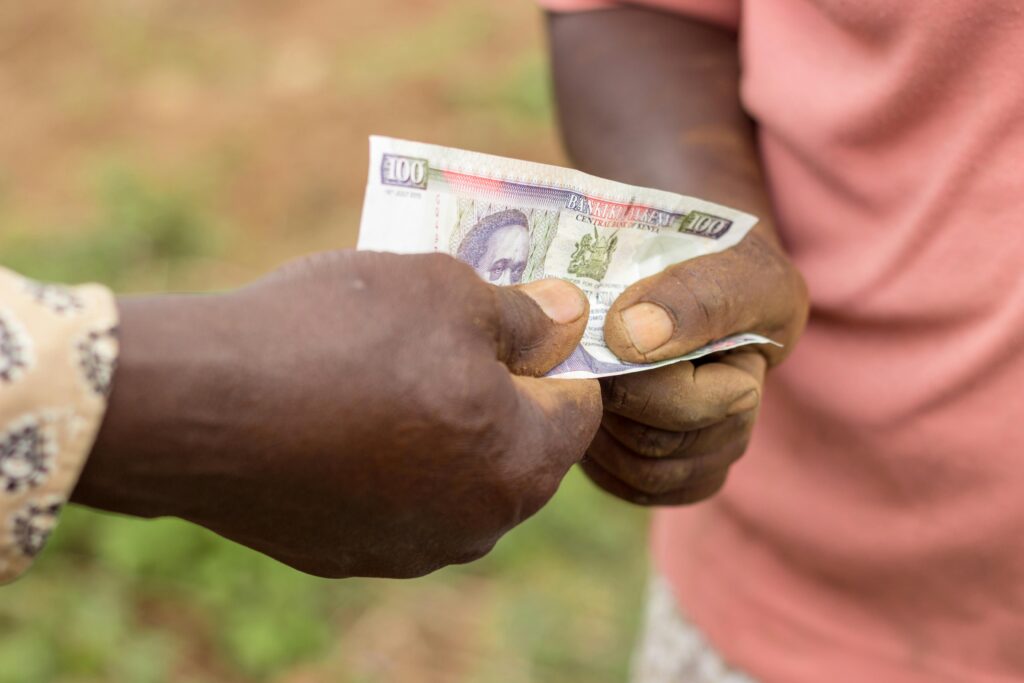
Currency: The Kenyan shilling is the official unit of money in the Republic of Kenya (KES). The Kenyan shilling (KES) is the official currency of Kenya, Sudan, and Somalia, each of which also uses a variation of the KES as their currency. Another popular Kenyan shilling sign is K or Ksh. Because it is more stable than the local currencies, the Kenyan shilling (KES) is used in the countries that border Kenya as a de facto international reserve currency. The Kenyan shilling denominations include 5/=, 10/=, 20/=, 50/=, 100/=, 200/=, 500/= and 1,000/= for banknotes. On the other hand, Kenyan shilling coin denominations include 1 shilling, 20 shillings, 10 shillings, 40 shillings, and 5 shillings.
The current exchange rate is 150.338 Kenyan Shillings to 1 US Dollar, or 183.168 Kenyan Shillings to 1 Great British Pound (18 October 2023).
https://www.oanda.com/currency-converter/en/?from=KES&to=USD&amount=150.338
https://www.oanda.com/currency-converter/en/?from=KES&to=GBP&amount=183.168
History and Key Events
Precolonial & colonial Era
- c 3.3 million BC – Evidence of some of the earliest human tools has been found in Kenya, suggesting that it was the cradle of humanity from which descendants moved out to populate the world.
- 600AD – Arabs began settling coastal areas, over the centuries developing trading stations that facilitated contact with the Arab world, Persia, and India.
- 1895 – Formation of British East African Protectorate.
- 1920 – East African Protectorate becomes crown colony of Kenya – administered by a British governor.
- 1944 – The Kenyan African Union (KAU) formed to campaign for African independence. First African appointment to the legislative council.
- 1947 – Jomo Kenyatta becomes KAU leader.
- 1952 – A mostly Kikuyu guerrilla group, officially the Kenya Land and Freedom Army but more often known as Mau Mau, begins a violent campaign, Jomo Kenyatta is jailed, and KAU is banned.
- 1961 – Jomo Kenyatta was released and took part in negotiations on the transition to independence.
- 1963 – Kenya gains independence, with Mr Kenyatta as prime minister.
Independence
- 1964 – the Republic of Kenya formed. Jomo Kenyatta becomes president and Oginga Odinga vice-president.
- 1978 – Kenyatta dies in office, succeeded by Daniel Arap Moi.
- 1991 – Kenya moves to a multiparty political system after 26 years of single-party rule.
- 2002 – Mwai Kibaki wins a landslide victory, ending Daniel Arap Moi’s 24-year rule
- 2007 – Disputed general elections are followed by violence.
- 2010 – Kenya joins its neighbors in forming a new East African Common Market, intended to integrate the region’s economy.
- 2010 – A new constitution designed to limit the powers of the president and devolve power to the regions approved in a referendum.
- 2011 – Kenya intervenes in conflict in Somalia.
- 2017 – A multi-billion-dollar railway line linking Mombasa to the capital Nairobi is opened, it is Kenya’s biggest infrastructure project since independence.
- 2017 August-October – President Kenyatta is declared the winner of the presidential election in August as well as the re-run in October.
- 2022 August – Deputy President William Ruto narrowly wins the presidential election, beating his main rival Raila Odinga.
Kenyan Food
When people think of visiting Kenya, they typically aim to experience the unique wildlife and spectacular environment. However, not many people realize that Kenyan food is among the most delicious you’ll find anywhere. Ask any Kenyan who lives away, and they will tell you how much they miss Kenyan cuisine! The country boasts 42 distinctive tribes, and as almost every community has its unique dishes, the culinary scene varies throughout the country, and the fact is you will never taste all of them. Ensure you try the following dishes before leaving Kenya – they’ll make you want to return!
Ugali (Cornmeal) is undoubtedly the national food in Kenya. It resembles polenta (Italian raw cornmeal) and is on every Kenyan menu. Coming to Kenya and not eating ugali would be like visiting Paris for the first time and not taking a photo of the Eiffel Tower. Ugali is made by mixing and heating maize flour or cornmeal with hot water until it reaches a dough-like consistency.
Pilau In Kenya, it is prepared for special occasions such as weddings and for visitors. It’s a delicious rice dish cooked with aromatic spices and either chicken or beef and is served with kachumbari. Pilau is believed to have been created by the coastal people in Kenya. When you’re in the country, don’t miss the opportunity to try pilau – it’s unforgettable!
Mukimo In Nairobi, you need to try mukimo – no occasion is complete without it. Initially developed by the Kikuyu people, Mukimo is a mashed potato dish with added ingredients such as corn, peas, and spinach that elevate flavor and nutrition. It’s typically served as a side to any meaty stew.
Mutura (Kenyan Sausage) is a Kenyan blood sausage that may be considered an acquired taste. This flame-grilled delicacy is made from cow, lamb, or goat intestines stuffed with a fresh blood mixture and then grilled. Mutura resembles Bratwurst, a German sausage, and its European relatives, such as the Spanish morcilla and Italian sanguinaccio. However, it’s heavily seasoned and richer in flavor than these alternatives.
Samaki (Fish) Tilapia and Nile perch from freshwater lakes in Kenya (Lake Victoria and Lake Naivasha) are a delicacy in Kenya. They are usually served dry-fried or wet-fried. Samaki, which means fish in Swahili, is popular with specific communities in Kenya, especially the Luo and Luhya in the west, but anyone can enjoy it.
Githeri (Boiled Corn and Beans) Githeri is a simple, nourishing dish attributed to the Kikuyu community in Kenya. The corn and beans are boiled and then fried to make delicious githeri. It can be served with either rice or chapatis. Avocado is also a favorite accompaniment.
Sukumawiki (Kale/Collard Greens) Sukumawiki is a Swahili phrase meaning “stretch the week.” In Kenya, sukumawiki is a popular household meal made with locally available ingredients, especially when accompanied by ugali. It’s prepared by braising it with sauteed onions and tomatoes seasoned with salt.
Samosas Samosas are triangular-shaped pastries filled with either peas, minced meat, or potatoes and deep-fried. They’re a perfect snack to have with your evening tea but they’re yummy at any time of day.
Things to do and see
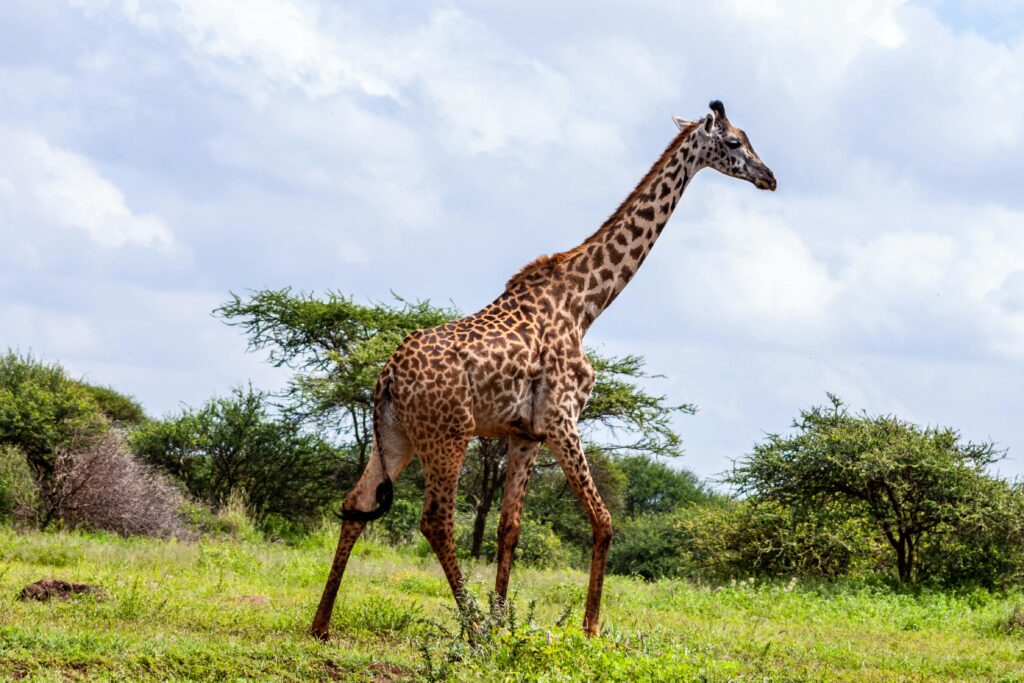
Mt Kenya: At 5,199m/17,057ft high, the largest mountain in Kenya is also the second highest in Africa after Kilimanjaro across the border in Tanzania. Mt Kenya is one of the most beautiful places to visit in Kenya. Travelers hoping to summit can either hike to Point Lenana, one of the three peaks, taking the world’s highest via Ferrata route (iron way), or climb to the highest point, Batian Peak, though this requires experience of technical climbing.
Diani Beach: Easily amongst the most picturesque shores in Africa, Diani Beach is about 30km/20 mi south of Mombasa and a short flight from Nairobi. Its white sands are lapped by the brilliant Indian Ocean and backed by verdant forests, into which you can take nature walks when you tire of sunbathing or kite-surfing. Head out for a snorkeling tour, swim with whale sharks, enjoy a sunset dhow cruise – or simply kick back in a hammock with a good book.
Turkana Cultural Festival: One of Kenya’s top tourist attractions is the three-day festival held in June and takes place at Loiyangalani, Marsabit County. This festival features all nomadic communities in Northern Kenya. In addition, the Tobong’ulore festival is held in Turkana County. Here The women and men are wearing ceremonial costumes made from animal skin and fitted with decorative beads. They are also wearing traditional beaded necklaces and coiled aluminum armbands.
Nairobi Fashion Week: The Nairobi Fashion Week ( NFW ) is a creative idea targeted to be a meeting place for the nation and Africa’s most creative talent. It’s an event created to showcase East Africa’s designers, stylists, producers, commentators, sponsors, and everyone in between to a global audience. NFW has been conceptualized to provide a leading platform for the Kenyan fashion industry to grow. It brings together all the necessary components under one roof to provide an opportunity to incubate and grow the Kenyan fashion industry.
Lamu Town: Kenya is not only noted for its safari reserves and savannah but also for its Indian Ocean coastline. The Lamu archipelago is amongst the most interesting places to visit in Kenya as an area brimming with history. Lamu town was founded around 1370 as a Swahili port that has since been inhabited by Europeans, Indians, and Persians. As such, it’s a melting pot of multicultural influences.
The Masai Mara National Reserve: is one of the most famous safari destinations on the continent. one of the best places in Africa for big cat sightings: lions, leopards, and cheetahs are all easy to spot. Then of course, there’s the big-ticket draw: the year-round migration that sees nearly two million wildebeest, plus half a million antelopes and thousands of zebras, following the rains around Tanzania and Kenya.
Traditional Maasai Eunoto Ceremony: Upon circumcision, boys graduated to young warriors popularly known as Morans Ilmurran. The ceremony is held every 10-15 years. It marks a new age-set. Traditionally, Maasai warriors are famous for their singing and ‘jumping dance.’ A sign of strength and to impress the unmarried women, the warriors compete to jump the highest.
The Nairobi National Museum: is a spectacular site of national heritage importance found at Museum Hill within a 10-minute drive from the city center of Nairobi, the museum is hosts a rich heritage of Kenya and a perfect city to visit during Nairobi City for travelers who wish to get a sample of Kenya’s history and sculptures. It also hosts various collections intended to celebrate the wide history and culture of Kenya, some of the notable attractions found in the Nairobi National Museum include contemporary works of art, stunning outdoor sculptures, a nature trail and a botanical garden, an on-site restaurant, and a small onsite garden.
Economy: A hub in East Africa
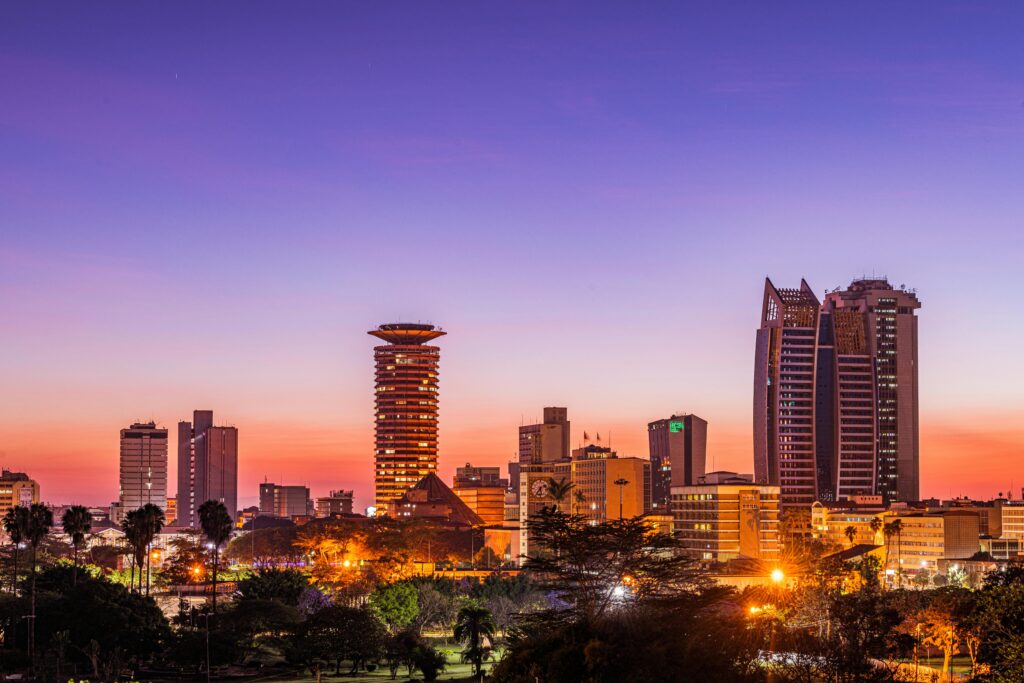
The economy of Kenya is market-based with a few state enterprises. Kenya has an emerging market and is an averagely industrialized nation ahead of its East African peers. Currently a lower middle-income nation, it plans to be a newly industrialized nation by 2030. Major industries include agriculture, forestry, fishing, mining, manufacturing, energy, tourism, and financial services. As of 2020, Kenya had the third largest economy in Sub-Saharan Africa, behind Nigeria and South Africa.
The government of Kenya is generally investment-friendly and has enacted several regulatory reforms to simplify foreign and local investment, including the creation of an export processing zone. An increasingly significant portion of Kenya’s foreign financial inflows is remittances by non-resident Kenyans who work in the United States, the Middle East, Europe, and Asia.
As of September 2018, economic prospects were positive, with above 6% gross domestic product (GDP) growth expected. This growth was attributed largely to expansions in the telecommunications, transport, and construction sectors; a recovery in agriculture; and the rise of small businesses helping to pull the economy. These improvements are supported by a large pool of highly educated professional workers. There is a high level of IT literacy and innovation, especially among young Kenyans.
Doing Business in Kenya
Ease of Doing Business Index Scores
Overall score: 73.2 (2020)
Starting a business score: 82.7 (2020)
Trading across Borders score: 67.4 (2020)
Enforcing Contracts score: 58.3 (2020)
Legal System: Kenya’s legal system is based on statutory law, English common law, customary law, and Islamic law. It has evolved from the inheritance of its English Common Law tradition to a modern-day system adapting to the changing social, economic, and political trends.
Company creation procedures:
- Reserve a unique company name using the eCitizen Portal
- Apply for company registration, PIN, NSSF, and NHIF through the online eCitizen portal
- Register for VAT and Pay As You Earn (PAYE) Income Tax at the Kenya Revenue Authority (KRA)
- Apply for a unified business permit at the Nairobi City County
- Register with the National Industrial Training Authority (NITA)
- Make a company seal
- Register the workplace with the Directorate of Occupational Safety and Health Services
Kenya Investment Authority (KenInvest)
Kenya Investment Authority (KenInvest) is a statutory body established in 2004 and currently operating through an Act of Parliament (Investment Promotion Act No. 6 of 2004) with the main objective of promoting investments in Kenya. It is responsible for facilitating the implementation of new investment projects, providing After Care services for new and existing investments, as well as organizing investment promotion activities both locally and internationally.
Keninvest’s mission is to promote and facilitate domestic and foreign investment in Kenya by advocating for a conducive investment climate, providing accurate information, and offering quality services for a prosperous Nation.
Keninvest’s services:
- Investment Promotion:
- Providing information on investment opportunities and sources of capital
- Providing information to investors on the business climate, operating rules, investment opportunities, and sources of capital
- Investor Facilitation
- Ensure expeditious and quality facilitation of projects for prompt implementation
- Assisting investors in obtaining licenses, permits, incentives, and exemptions
- Liaison with other government agencies for the issuance of additional licenses and approvals not directly handled by the Authority.
- Aftercare Services
- Provision of effective post-implementation (AfterCare) Services.
- Following up with investors at regular intervals to assist in smooth project implementation and address any concerns
Why invest in Kenya
Kenya is the largest and most advanced economy in East and Central Africa. Its GDP accounts for more than 50 percent of the region’s total and in terms of current market prices, its 2014 GDP stood at $58.1 billion. Kenya’s strong growth prospects are supported by an emerging middle class and an increasing appetite for high-value goods and services.
Kenya’s Value Proposition:
- East Africa’s Largest Economy: Liberalized and strong economy in the region, Kenya is the largest and the most advanced economy in East and Central Africa; with strong growth prospects supported by an emerging, urban middle class and an increasing appetite for high-value goods and services.
- Low-Risk Investment Environment: Kenya’s investment climate is the strongest in the EAC, with FDI flowing in from emerging and developed markets and a high volume of multinational companies with regional and continent-wide headquartered in the country.
- Strategic Location: Kenya is strategically located as a gateway to the East and Central African region. With a border to the Indian Ocean, Kenya is well suited as a production and distribution base to service Africa, Europe, the Middle East, South Asia, and other Indian Ocean Islands.
- Improving Infrastructure: Kenya has relatively well-developed physical infrastructural facilities including, four international airports, an extensive road and railway network, a modern deep sea port at Mombasa capable of handling bulk and other containerized cargo, an expanding, liberalized energy sector, and digital telecommunication networks. As a result, Kenya continues to develop as a financial, other services, and transport hub for the East and Central African region.
- Reducing energy cost and improving energy availability: Kenya is ideally positioned to unleash Africa’s power generation capacity through its focus on green energy and cost-effective sources of energy, set to contribute to a 5000MW increase in the national power grid.
Investment Opportunities:
Key Business & Investment Opportunities available for direct investment, joint ventures or Public Private Partnerships (PPPs) exist in:
- Tourism & Hotel and Resort Sector: Kenya’s objective is to be a top 10 haul tourist destination with a high-end, diverse, and distinctive visitor experience aimed at increasing contribution to GDP. Tourism is one of Kenya’s leading foreign exchange earners and the third largest contributor to the GDP after agriculture and manufacturing
- Agriculture: Agriculture is the mainstay of the Kenyan economy directly contributing 26 percent of the GDP annually, and another 25 percent indirectly & accounts for 65% of Kenya’s exports. Kenya produces and exports some of the world’s best tea and coffee among other agricultural products. Massive opportunities exist in:
- Production infrastructure (Development of multipurpose dams & irrigation Schemes);
- Market infrastructure (post-harvest management facilities, cold storage facilities as well as Warehousing Receipting)
- Value Addition (Tea, Coffee, Fruits, etc.)
- Transport & Infrastructure: Opportunities in this sector exist in:
- Development of Nairobi Metropolitan mass transit system(Bus Rapid System & light rail system);
- Construction of standard gauge railway (Nairobi-Malaba);
- Construction & maintenance of Roads via PPP;
- Massive opportunities also exist in the newly created Counties
- Manufacturing: Kenya is a prime supplier of basic goods in East & Central African markets and numerous opportunities exist in:
- Agro-processing (processing fresh foods, fruits & vegetables);
- Hides, Skins & Leather (Leather processing, footwear & leather products);
- Horticulture ( Facilities for freezing fruits & vegetables);
- Textile & Clothing (garments manufacture for exports to the US under the African Growth Opportunity Act (AGOA) facility);
- Fertilizer & Pesticides Manufacturing;
- Cement Production;
- Tyre manufacturing;
- Information & Communication Technology: Opportunities exist in the following areas under Public Private Partnership arrangement:
- Construction of ICT parks
- Software & Hardware Development
- Business Process Outsourcing services
- Call centers for both inbound and outbound calls
- Energy: Electric Power supply in Kenya falls far below the demand & golden opportunities exist in:
- Geothermal Development;
- Renewable Energy (Solar, Wind, Bio-Fuel);
- Coal, Oil and natural gas exploration;
- Transformer Manufacturing.
- Mining: Kenya is endowed with a wide range of mineral resources. Opportunities exist in:
- Mineral exploitation (Soda Ash, Limestone, Fluorspar, Gemstones, Titanium, etc);
- Value addition through joint ventures.
Mega Projects in Kenya
Lamu Port-South Sudan-Ethiopia-Transport Corridor project: Arguably Kenya’s most ambitious venture, the Sh2 trillion LAPSSET Corridor project is hoped to boost economic activities and double the country’s GDP. Its main components include Lamu Port, the Lamu-Ethiopia-South Sudan highway, the Lamu-Juba-Addis Ababa railway, an oil refinery, and a 2,240km pipeline linking oil fields in South Sudan to the refinery at Lamu Port. It also includes constructing three resort cities at Lamu, Isiolo, and Lokichoggio, constructing airports in the resort cities, and developing a 1,100MW power line and a 185km water supply line.
Mega Dams: Since April 2013, various government agencies have signed or announced more than Sh700 billion worth of dam construction projects nationwide. Several mega dams are currently under construction for Sh143 billion. These include Sh37 billion Thwake Dam in Kitui/Makueni counties, Sh28 billion Itare Dam in Nakuru County, Sh24 billion Karimenu Dam in Kiambu County, and Sh5 billion Siyoi Muruny in West Pokot County.
Health
A passport, visa, and proof of vaccination against Yellow Fever may be needed when entering Kenya from certain destinations.
It is strongly recommended that you visit a travel vaccination clinic and get other vaccinations and prophylaxis for malaria.
COVID-19
From 9 May 2023, the Government of Kenya no longer requires proof of either COVID-19 vaccination or a negative COVID-19 PCR test for entry into Kenya.
Immigration
If you are visiting Kenya, your passport should be valid for 6 months from the date you arrive. You should have at least two blank pages in your passport on arrival.
Kenyan entry visas are exclusively issued electronically, with passengers required to obtain their e-visas before departure. You can apply for single entry and transit visas on the Kenya e-visa website: https://evisa.go.ke/
Must see attractions
Kitengela Glass Art – A Wonderland: Nani Croze, a German-born creative and conservationist who has called Kenya home for over 40 years and has built from scratch, the world famous, Kitengela Glass Art community. It is a like a gem and a treasure trove. It is in a dry spot of the plains south of Nairobi. But the Park has been a barrier to development. There are still no services such as proper roads, water, electricity, etc. However, the constant stream of visitors never stops. One can spot the unique and beautiful pool on the ridge of the gorge that looks like a Loch Ness monster swimming in it from the airplane when it approaches Nairobi’s Kenyatta airport.
Although it is referred to as the Kazuri Bead Factory, it is really an artisan workshop where the beads for necklaces and bracelets as well as other pottery are created. Everything created by the artisans for Kazuri are handmade and hand-painted based on a preset pattern that each of the workers follow. In addition to creating beautiful jewelry and pottery, Kazuri provides work for mostly single mothers and provides free medical care for their employees and their immediate family. Buying items from Kazuri, which are sold worldwide, is really an opportunity to get some something beautiful and help the people as well.
Kenya Travel Business Assistance
Are you planning to move your business to Kenya or open up Kenya as a new market? Perhaps there is a conference in Kenya you need to attend and you need some help. We are here for your Kenya Travel Business Assistance.
